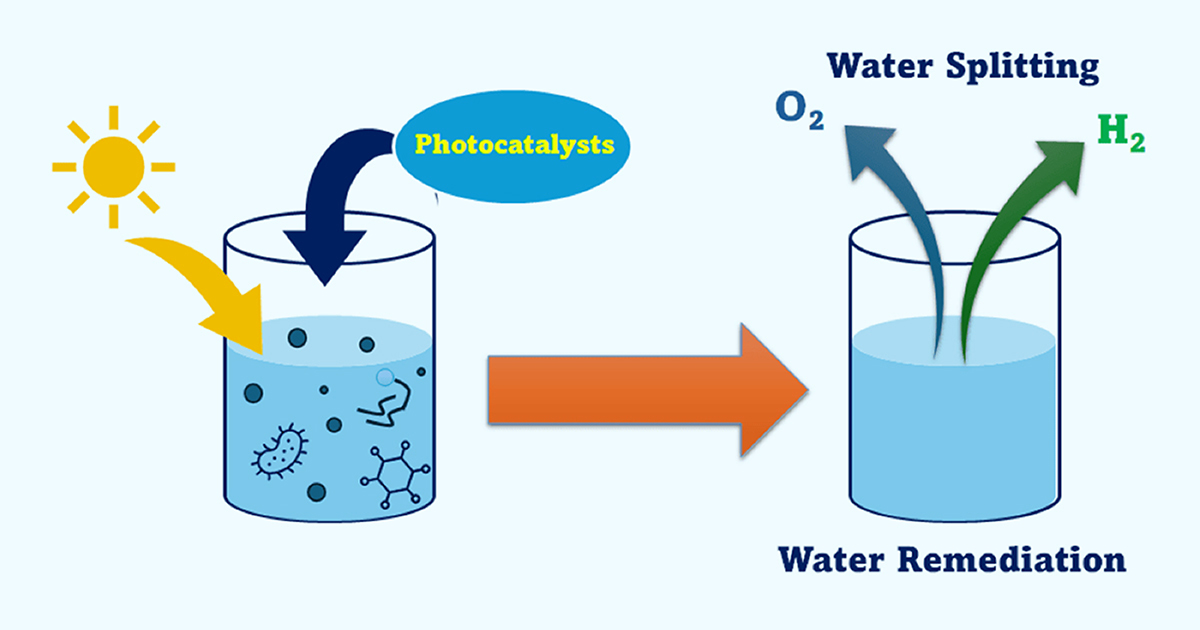- 2.4Impact Factor
- 3.9CiteScore
- 15 daysTime to First Decision
Photocatalytic Process for Water Remediation and Water Splitting
This special issue belongs to the section “Photochemistry and Excited States“.
Special Issue Information
Dear Colleagues,
Photocatalysis has been demonstrated to be a promising sustainable technology for addressing two key global challenges: the provision of clean water supplies and development of carbon‐neutral energy systems. Thanks to advances in semiconductor materials, nano-structuring, interface-engineering, and visible-light activation, the efficiency of photocatalytic processes favorable for water purification or water-splitting has been greatly improved. These advancements can enable the degradation of organic pollutants, pharmaceuticals, dyes, pesticides, and emerging contaminants, as well as the production of hydrogen via efficient water splitting.
The objective of this Special Issue, “Photocatalytic Process for Water Remediation and Water Splitting” is to showcase recent advances in photocatalyst development as well as mechanistic insights into process optimization. We invite researchers to submit papers on novel materials, heterojunction systems, photocatalysts based on MXene and carbon, advanced characterization techniques, and kinetic models for the development of reactors from laboratory- to pilot-scale applications. We are particularly interested in (i) studies that connect fundamental analysis of photocatalysis with its practical realization and (ii) studies on the long-term stability/techno-economic prospects of photocatalysis. By bringing together interdisciplinary research from chemistry, materials science, environmental engineering, and renewable energy, this Special Issue seeks to provide valuable insights and guide future advancements in sustainable photocatalytic technologies.
Dr. Anupam Singha Roy
Dr. Sekar Karthikeyan
Guest Editors
Manuscript Submission Information
Manuscripts should be submitted online at www.mdpi.com by registering and logging in to this website. Once you are registered, click here to go to the submission form. Manuscripts can be submitted until the deadline. All submissions that pass pre-check are peer-reviewed. Accepted papers will be published continuously in the journal (as soon as accepted) and will be listed together on the special issue website. Research articles, review articles as well as short communications are invited. For planned papers, a title and short abstract (about 250 words) can be sent to the Editorial Office for assessment.
Submitted manuscripts should not have been published previously, nor be under consideration for publication elsewhere (except conference proceedings papers). All manuscripts are thoroughly refereed through a single-blind peer-review process. A guide for authors and other relevant information for submission of manuscripts is available on the Instructions for Authors page. Chemistry is an international peer-reviewed open access monthly journal published by MDPI.
Please visit the Instructions for Authors page before submitting a manuscript. The Article Processing Charge (APC) for publication in this open access journal is 1800 CHF (Swiss Francs). Submitted papers should be well formatted and use good English. Authors may use MDPI's English editing service prior to publication or during author revisions.
Keywords
- photocatalysis
- water remediation
- water splitting
- hydrogen production
- advanced oxidation processes
- semiconductor catalysts
- heterojunctions
- nanocomposites
- solar energy conversion
- photocatalytic mechanism

Benefits of Publishing in a Special Issue
- Ease of navigation: Grouping papers by topic helps scholars navigate broad scope journals more efficiently.
- Greater discoverability: Special Issues support the reach and impact of scientific research. Articles in Special Issues are more discoverable and cited more frequently.
- Expansion of research network: Special Issues facilitate connections among authors, fostering scientific collaborations.
- External promotion: Articles in Special Issues are often promoted through the journal's social media, increasing their visibility.
- e-Book format: Special Issues with more than 10 articles can be published as dedicated e-books, ensuring wide and rapid dissemination.

